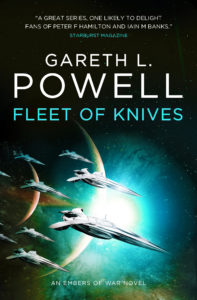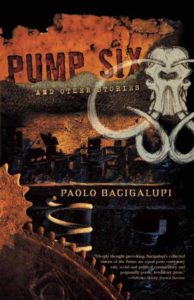There are lots of really great things about this book. The world-building is A++, with an excellent, well-described magic system and a very rich fantasy setting that is gloriously and unapologetically Afrocentric. The plot skips along briskly, and the depictions of rage and righteous anger are both compelling and wholly convincing. I liked that there was discussion as to whether magic should come back to Orisha, but thought, honestly, that some of the arguments against were so facile as to warrant more brevity than they were given. The question of arming insurgents is always a tricky one, but if the alternative is their continued oppression, to the point of eradication, what choice is there? Principles that allow for genocide aren’t moral principles at all.
Anyway, several years ago, the Orishan king managed to both eradicate and outlaw magic, killing all the adult hereditary magic users and stopping their children from being able to access their powers come puberty. Zelie is one of these children, marked with her white hair and dark skin. She, her family and her village are struggling to survive as the king increases taxes on those “harboring” people like her. In desperation, she and her brother, Tzain, travel to the capital to sell a rare fish to raise money for said taxes.
In Lagos, Zelie becomes embroiled in a plot to return magic to Orisha, courtesy of crown princess Amari. Amari’s older brother and heir to the throne, Inan, is sent to recover her, even as he hides a shameful magic-related secret of his own. The hunt to recover Amari and thwart her quest forms the rest of the book.
Much as with Alwyn Hamilton’s Rebel Of The Sands, there’s a lot of potential here, but also a lot of “huh, what?” moments. The need to flee Chandomble made no sense given how difficult it was to breach in the first place, and there were a lot of weirdly rushed emotional notes, such as Amari’s final confrontation with her dad. Normal debut stuff (tho I cringed a bit to read that Tomi Adeyemi teaches creative writing,) but that’s part of the trouble: so much perfectly normal, perfectly average YA fantasy shenanigans. Only the world-building truly sets it apart from the other stuff out there. As with Ms Hamilton’s series, however, I’m hoping that this one crescendos to something truly remarkable, and am looking forward to eventually finding out for myself firsthand.





